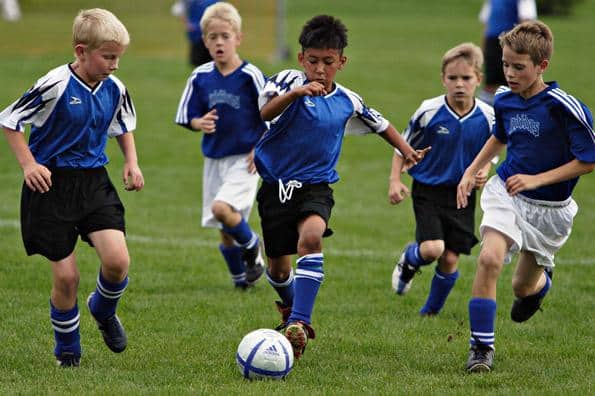By Dr. Nick Molinaro
Youth sports provides kids physical, social, academic, and emotional growth opportunities for life overall. But in today’s world, kids are quitting sports at a rate of 70% before age 13. A scary statistic for parents who know the benefits sports provide.
So, what should a parent do when a child comes to them and says they want to quit? No one answer can be applied for every child who expresses a desire to quit sports. There is, however, one process that works for each potential scenario.
Before I discuss my recommended process, we must understand the three common ways kids approach parents when they want to quit. The typical scenario most sports parents experience is when a child walks away from practice or a game in a heightened emotional state and proclaims, “I want to quit!” As adults we understand this be a visceral response to an event and these feelings are usually fleeting.
Then there are times when a child says those words in frustration, but it’s in response to something that has been brewing for some time; a “final straw” scenario. Or lastly, they mention their desire to quit in a calm manner, quite often testing the waters to gauge a parent’s reaction.
Below is the process I recommend for parents to follow if one of these situations arises. There are two main actions in this process: listening and discussing. Note the numbered steps below each action as these steps are critical to a positive outcome for the child:
Listening
- Become an active listener. Typically, these moments when a child is ready to give up a sport they can be emotionally charged. As the parent, you need to not react to your child’s emotional moment. Validate their feelings through being an active listener: remain calm, listen to what they are telling you verbally, what they may be implying, and what their actions are saying. Even if your child comes to you in a calm manner wanting to quit, this step is crucial. You know your child better than anyone, so this listening time will provide you with essential information.
- Employ empathy. Take the information your child is giving you and put yourself in their shoes. See their world through their eyes to gain a deeper understanding of their feelings. For example, think to yourself: What must it have been like when the coach yelled at them or when they failed to execute the shot, losing the game for their team?
- Determine causality. Decide if this is a one-time situation or has your athlete lost their passion for the sport altogether. Note, a loss of passion means the athlete no longer finds joy in playing. It has been my experience that temporary, situational frustrations will come and go quickly such as, fatigue, hurt feelings, embarrassment, or your child’s reaction to failure. Now, if the athlete’s feelings are more lasting and ever present even after they calm down, then their desire to quit may have been brewing for some time and just potentially culminated in a “final straw” scenario. If their passion for the game is gone, then their desire to quit may have merit.
Discussing
At this point you have listened and have a clear view of what was driving the athlete’s reaction, follow these steps:
- Find time when you can have a logical, calm discussion with your child. It does not have to be immediate, as it may take time for emotions to cool, but it must be timely; before the next practice or competition.
- Convey your thoughts and your interpretation of the problem. This is a huge opportunity to show you listened and to clear up any incorrect assumptions you may have formed.
- If your child still has passion for the sport, meaning they still find joy in it, then you can determine their angst was situational. So, encourage them to think of the event or happening in a growth-minded manner; failure or negativity is something to overcome and part of the process of growing. Explain that this experience is an opportunity to become a better player.
- If you determine this is a “final straw” scenario and/or a long brewing loss of their passion for the sport, then you can help your child decide the next steps. When the passion is lost and an athlete is looking to leave a sport, help them see it as a change and not a failure. Be their guide and start the conversation by asking, “How do you think you should handle your exit from the sport?” Be aware that an older, more accomplished athlete may have their identity tied up in that sport and they often go through a period of mourning when they leave it. Your support, without judgement, is crucial.
In addition to following the above process, dispense with the myth that once a quitter, always a quitter. There is no scientific evidence of this being a proven fact. In fact, I could site time and time again where this was proven incorrect. And never focus or bring into the discussion what someone else may think or say. This decision should only involve the best interest of your athlete. So, use this time as chance for you, the parent, to actively listen, and guide your child toward a decision that works for them.
To learn more on nurturing your child’s mental game, read Dr. Nick’s new book, Beyond The Scoreboard: Learn It Through Youth Sports, Carry It Through Life.







